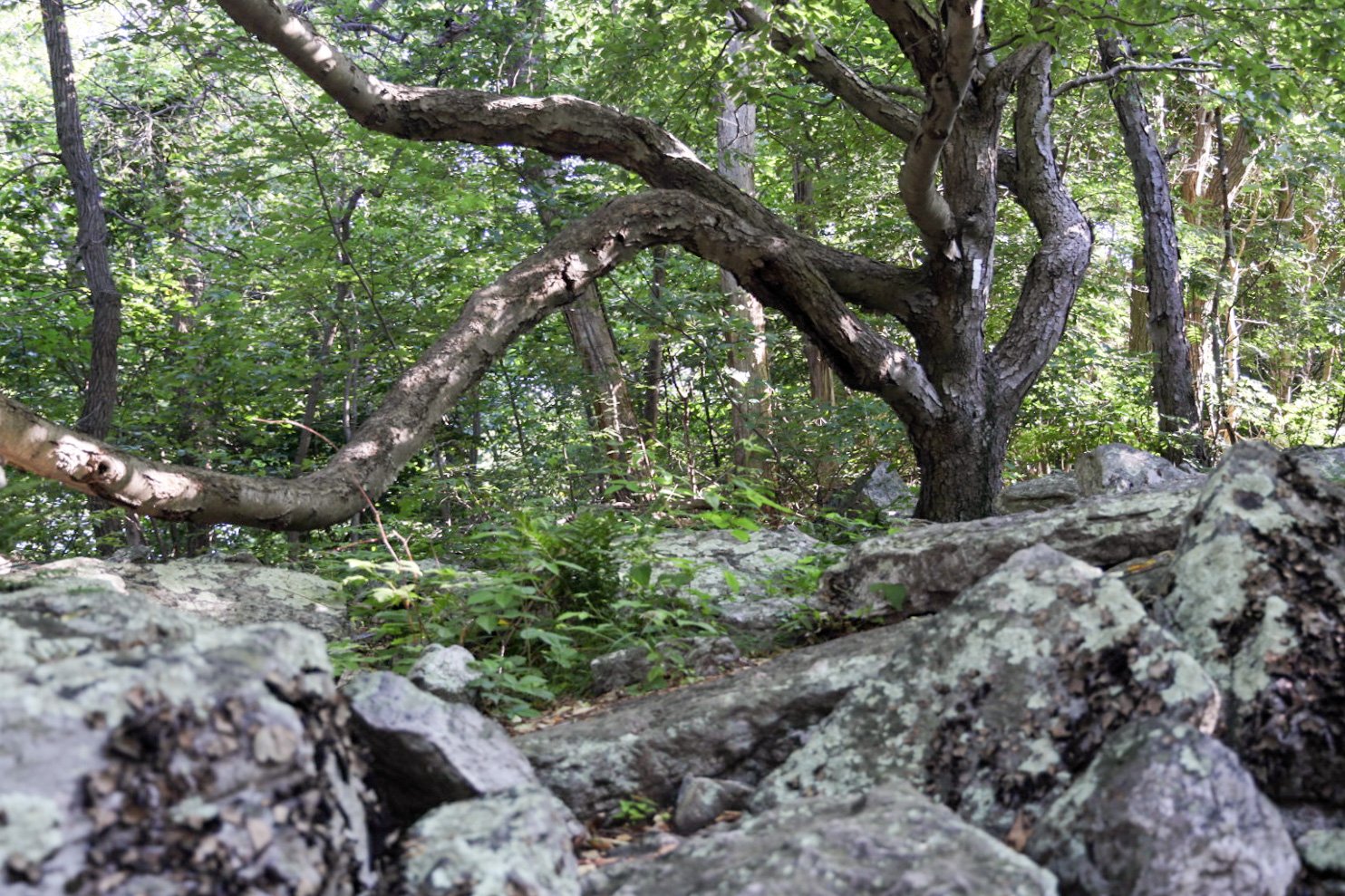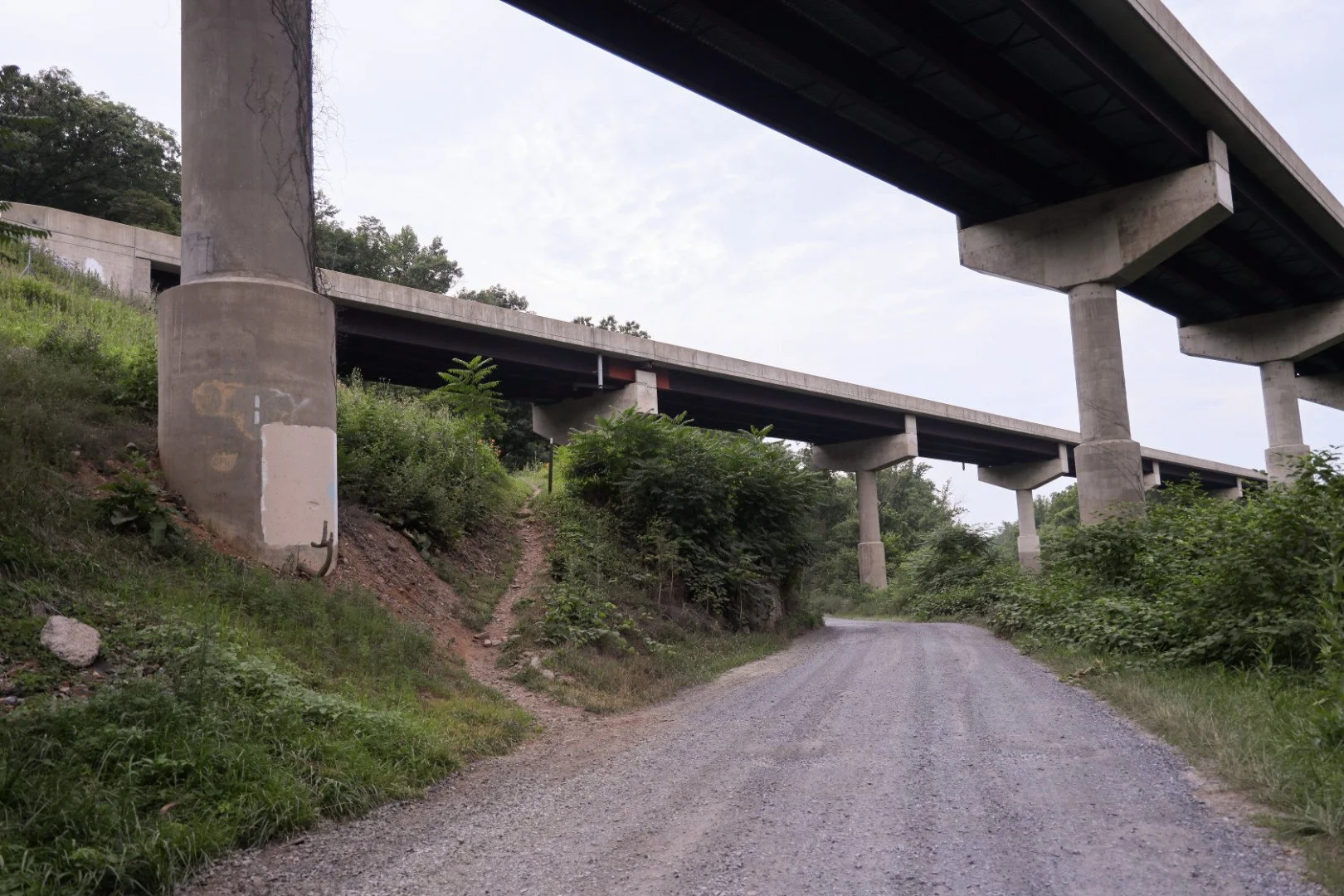No, I’m Not Okay: How to Really “Embrace the Suck”
There are many phrases and sayings that float around on the Appalachian Trail. “Don’t quit on a bad day.” “No pain, no Maine.”
But the one I probably hear the most and read most often in trail logs is: “Embrace the suck.”
This saying is reserved for those moments when the miles are long and the magic of thru-hiking begins to wear off.
When I heard this saying, both before and after starting the trail, I understood it as a strange, out-of-place offshoot of hustle culture. Strange, because I’d thought we were in agreement to leave hustle culture behind in the “real world” from whence we came.
To me, “hustle” and “Embrace the suck” both initially call forth the mental image of a young, burnt-out finance bro, working 80-hour weeks to finally afford that coveted Peloton subscription. It calls to mind the capitalistic ideology that crowns suffering, in and of itself, as a virtue.
Suffering is not a virtue.
Yes, there is suffering on the trail, as there is suffering throughout our lives - but that’s not the point of the experience. Yes, suffering can help build character. But the suffering itself doesn’t directly translate into a positive outcome. The way that we encounter our own suffering - how we understand it, make sense of it, and move with or beyond it - is what gives suffering the ability to be, at best, virtue-adjacent. Suffering is a co-creator of virtue, but not the main driver itself.
So this idea of “embracing the suck” both confused and intrigued me. It sounded like hustle. It sounded like embracing suffering for suffering’s sake. It simply didn’t make sense in the context of thru-hiking as I understood it: as a journey you take for the journey’s sake. Hustle and the meandering path of a 6-month thru-hike seemed to be polar opposites.
I’ve been mulling over “embracing the suck” as I’ve hiked, and only very recently settled on a definition that makes sense to me.
This realization is something that built itself up as I hiked through northern Virginia, and some of the novelty of hiking the Appalachian Trail started to wear off. I felt fatigued. Burnt out. Uninspired. The trail became more task than journey.
But that wasn’t even the worst part.
As I felt tired and uninspired and burnt out, I also began to feel guilt creeping in. Guilt, for feeling the way that I was beginning to feel about the hike. Intrusive thoughts began to creep in:
So many people would give anything to be able to do what you’re doing right now.
You’re so flighty and indecisive. You’ve wanted to hike the AT for years and when you get it, you don’t even enjoy it.
Maybe ____ was right. Maybe you don’t have what it takes.
As these shame-driven thoughts piled up, the further I began to spiral deeper into my suffering. And then I realized something.
These thoughts certainly weren’t making me feel better. In fact, the more attention I gave to them, the worse I felt. I would wake up more tired than I was when I went to sleep. I was sore, sluggish, and my joy was completely gone. I plodded past every viewpoint without even lifting my gaze.
So, I decided to embrace the suck - in a different way.
I decided to embrace the fact that the trail just sucks sometimes. And feeling down during those times is not only okay - it’s a normal response to an unpleasant situation.
There are some days you simply put your head down and get miles done. All you see is trail between your toes. You don’t have the energy to look up and appreciate it with the wide-eyed wonder of a new hiker. This is okay. This is normal.
Every single day on trail doesn’t have to feel like a gift, the best thing in the world, and pure magic. Some days, it is pure drudgery.
This reality is hard to imagine before you start hiking. After you’ve planned and hoped and dreamed for the thru-hike, it almost feels wrong to think of it that way - to think of this life-changing journey as a monumental, difficult, and often unpleasant task.
It’s especially difficult to see the Trail as anything other than amazing as you watch highlight reels of other hikers’ Instagram feeds. Now, you can watch full-length documentaries of other people’s hikes, seeing the trail magic and the majestic vistas, and often none of the endless rain, pointless uphills, and miserably hot, rocky stretches of trail.
If you’re having a day of pure drudgery… and then feeling guilty because it’s pure drudgery and that doesn’t match the highlight reels or your own imaginings of what the experience was “supposed” to be… you’re going to have a really bad day.
To me, this is what “embracing the suck” is. Embrace the fact that sometimes, the trail just sucks.
Yet, you can persevere without a smile on your face. It’s okay to turn your face down and just keep walking and feel the way you feel. There are many things that we joylessly endure, to our ultimate benefit. In my own life, I’ve watched the pain of a divorce alchemize itself into a new era of self-discovery and freedom. But that didn’t mean the suffering associated with it was a good thing. It just… was. And in that situation, I didn’t feel an ounce of guilt for not being okay.
So why was I treating the very real difficulties of the trail in a different way? Why was I ignoring the fact that the trail was painful? Unpleasant? Uninspiring? And why did I waste valuable energy to pile onto that already-existing suffering by feeling guilty for feeling that way?
There’s no need to put a positive spin on suffering - because the suffering itself isn’t the thing that will propel you further down the trail, or through life.
Being honest with yourself about your true, lived experience is the only thing that will take you further than where you already are.



